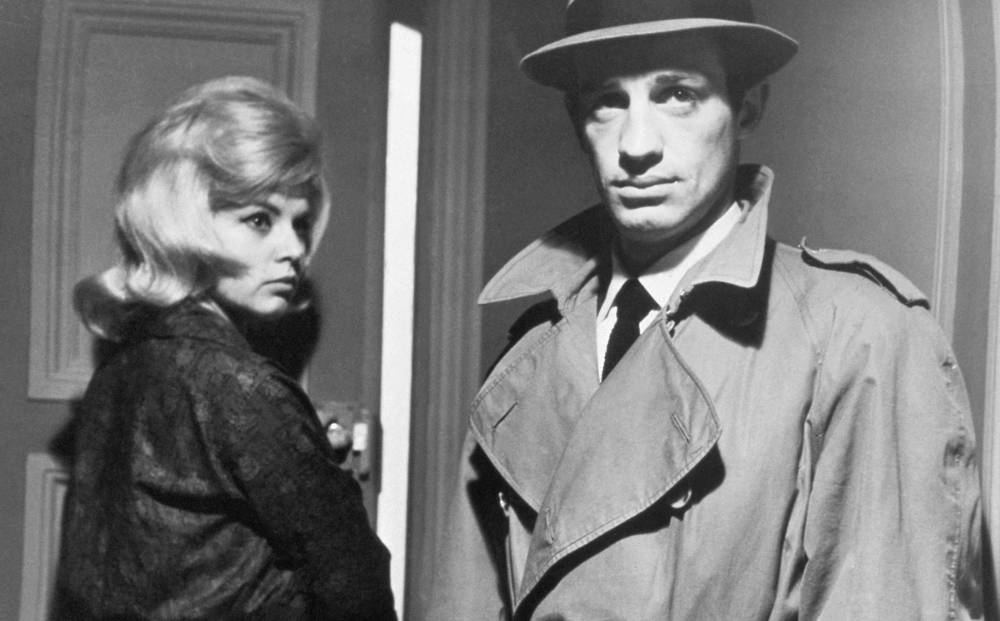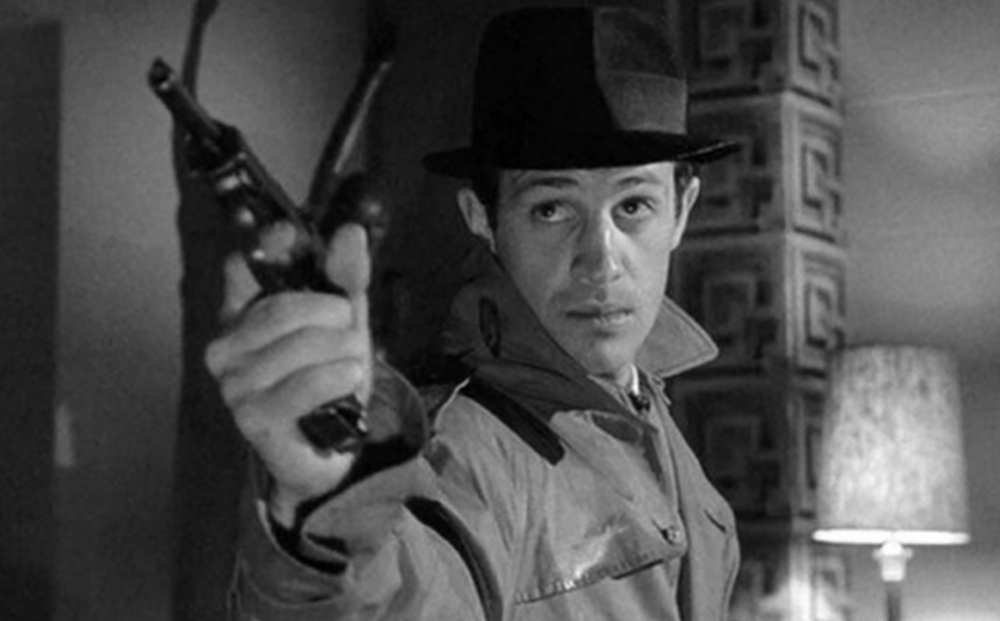LE DOULOS
France, 1962
Directed by Jean-Pierre Melville
With Jean-Paul Belmondo, Serge Reggiani, Jean Desailly
In French with English subtitles
Approx. 108 mins. 35mm.
A noir masterpiece from the late Jean-Pierre Melville (LE SAMOURAÏ, BOB LE FLAMBEUR), spiritual Father of the French New Wave, this drama of trust and betrayal was the second of his three straight collaborations with Jean-Paul Belmondo, and the first of his last great series of studiously unrealistic gangster thrillers. The telephone booths, subways, bar, sash-windows, and police super’s office—all loving reproductions of classic American originals—create a strange Paris underworld that’s Melville’s own. In French criminal argot, doulos means a hat, as well as the stoolpigeon who wears it, and whether Belmondo is or isn’t remains a question mark until the very last minute of the picture. (Belmondo supposedly didn’t know himself until he saw the film). Impeccably photographed in black & white by Nicolas Hayer (who’d shot Cocteau’s ORPHÉE), LE DOULOS also features assistant director Volker Schlondorff in a bit part, sterling performances by Serge Reggiani (ARMY OF SHADOWS), Michel Piccoli, and Jean Dessailly, and an incredible 9-minute, 360˚ pan shot in a room full of reflecting glass.
Presented with support from the Ada Katz Fund for Literature in Film
Reviews
“RIVETING! Worth seeking out.”
– Time Out
“A SUPERBLY-CRAFTED FILM NOIR! TAUT AND TERRIFIC!”
– David Sterritt
“A TRICKY, ATTITUDE-DRENCHED THRILLER! The melancholy action is scored to cool virbaphone doodles, punctuated by the ceremonial display of key totems (trenchcoats, cigarettes, revolvers) and interspersed with sudden spasms of violence: there are eight fatal shootings, six of them point blank. Melville was not just a father figure of the French New Wave, he was ascetic warrior priest...this odd mix of Warner Brothers and Rossellini has a forceful, adolescent lyricism.”
– J. Hoberman, Village Voice
“There are two grand reasons to see LE DOULOS: first, Jean-Paul Belmondo steals every scene, whether he is slapping around a beautiful blonde or shooting it out with a gang of thugs. Second, the late Jean-Pierre Melville, who uses ingenious camera tricks and très noir atmosphere...Belmondo’s dazzling double-gun trick is worth the price of admission alone...”
– V.A. Musetto, New York Post


